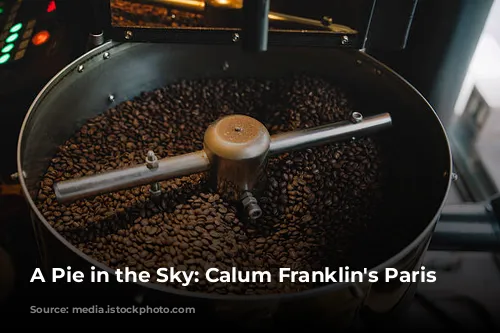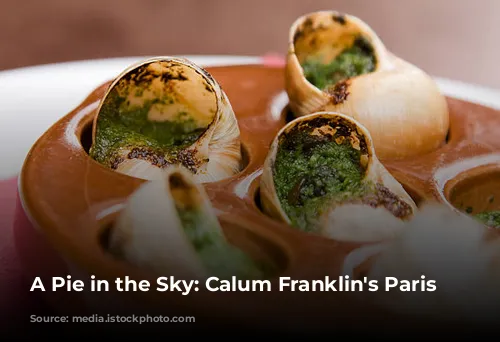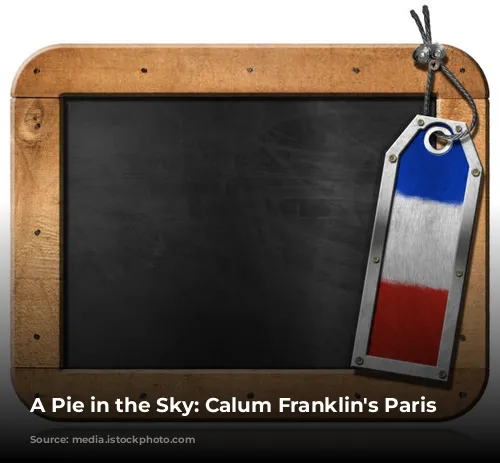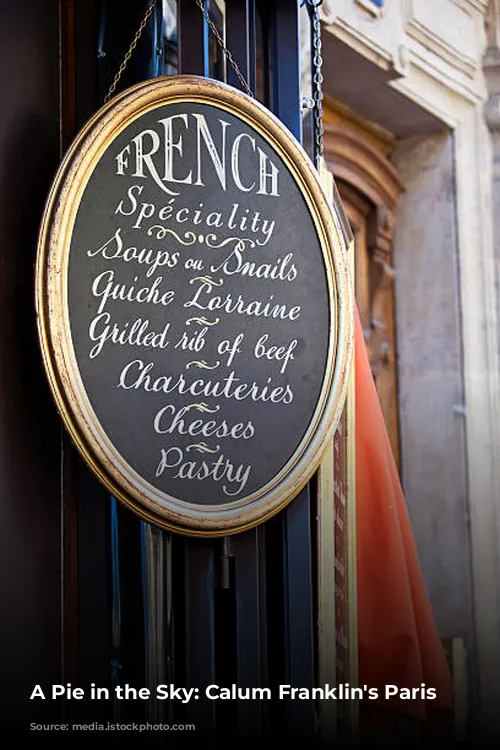It was a simple plan: hop on the Eurostar to Paris and indulge in a gastronomic adventure at Public House, a new and daring restaurant in the 9th arrondissement. This ambitious venture was the brainchild of pie master Calum Franklin, known for his culinary prowess at the renowned Holborn Dining Room. His mission: to introduce the French to the delights of British cuisine – scotch eggs, sausage rolls, and flaky pastry creations fit for a king. I envisioned a delightful scene – Parisians, clad in Louboutin heels, swooning over steak and ale pies as their gastronomic horizons expanded. It seemed the perfect setting for an observational piece about the gravy-slicked Anglais showing the French how to eat. After all, if anyone could bridge the culinary gap and make the French appreciate the quality and depth of modern British food, it had to be Franklin. He’s a gifted chef with a passion for pies so profound he even wrote the book on them.
Alas, reality had other plans. My optimism quickly dissipated as I found myself facing a culinary catastrophe that defied all expectations. While Public House is not a British restaurant in the traditional sense – it’s owned, run, and staffed by French people – the disastrous experience left me feeling utterly disheartened. There was no nationalistic blame game to be played here; the flaws were undeniable and the culinary symphony played out of tune. Franklin, oh Franklin, where did it all go wrong?

A Symphony of Disappointment
On the surface, Public House seemed promising. Images on Instagram showcased a stylish interior, complete with candy-colored tiling, elegant carpentry, and polished brasswork. Up close, these details were indeed beautiful, but the overall aesthetic felt disjointed. Seated in the first-floor dining room, I was squeezed between a pillar and a looming giant, overwhelmed by the overly bright lighting, Fanta-orange walls, and forced Scottish references. The atmosphere was unwelcoming and the name “Public House” was a complete misnomer. It felt like a pub in disguise, trying desperately to appeal to a family crowd.
The bread basket arrived, promising a rustic charm. However, the sourdough, although touted as “heritage”, was dry and stale, a clear sign that it had been sliced too early. Our request for butter was met with indifference, and we waited 20 minutes for a tiny dollop. Our waiter’s demeanor was far from welcoming, a reflection of the French commitment to their cultural traditions, which apparently included offering hospitality as cold and unwelcoming as a Finnish winter.

A Series of Culinary Missteps
We started our culinary journey with pig’s head croquettes. The crumbed and deep-fried cubes of braised meat, like the stale sourdough, were tepid and disappointing, like last-minute canapés hastily thrown together. The scotch egg, a British classic, was equally disappointing. The boudin noir casing, although intriguing, was served tepid and raw in places, leaving us with a surprisingly unappetizing experience.
Our further attempts to navigate the menu were met with misunderstandings and confusion. We requested whitebait, only to be served white bean soup, a clear sign that communication was lacking. The whitebait finally arrived, cooked to order and at least hot, but they lacked the expected crunch. The meager portion of anchovy hollandaise disappeared quickly, leaving us wanting more.

The Pie that Broke My Heart
The pie room was the culinary centerpiece of the restaurant, and what I had been eagerly anticipating. I had fond memories of Franklin’s hot pork pie, bursting with flavor and pastry perfection. This time, however, the pie was a disaster. The lobster pie, a two-person feast at a hefty price tag, promised flaky pastry, succulent lobster, and culinary delight.
The golden blanket of pastry, however, hid a disappointing reality: overcooked fennel, bland potatoes, and a scanty amount of seafood. The lobster tail was hard to find, and the pastry was raw and heavy, a dismal combination of bad conception and execution. The absence of Franklin in the kitchen that night might have been a contributing factor. However, even if the fennel and pastry had been cooked properly, the pie’s lack of lobster would have made it a major disappointment.

A Bitter Farewell
We ended our dismal meal with a comforting ice-cream sundae and a sticky toffee pudding, a weak attempt to salvage the experience. The wine list, dominated by French wines, seemed odd for a restaurant described as a British Brasserie, especially considering the quality of British wines.
Leaving Public House, I couldn’t help but feel a sense of disappointment and frustration. I was shocked and disheartened that a restaurant with Calum Franklin’s name attached could deliver such a lackluster experience. My silence would have been a betrayal to those who had high expectations, so I felt compelled to share my honesty, however unpleasant. Perhaps in a few months, when the British Olympic team arrives in Paris, they will have a better experience. But for now, Public House remains a reminder that even the most talented chefs can stumble and that every culinary adventure carries the risk of disappointment.










